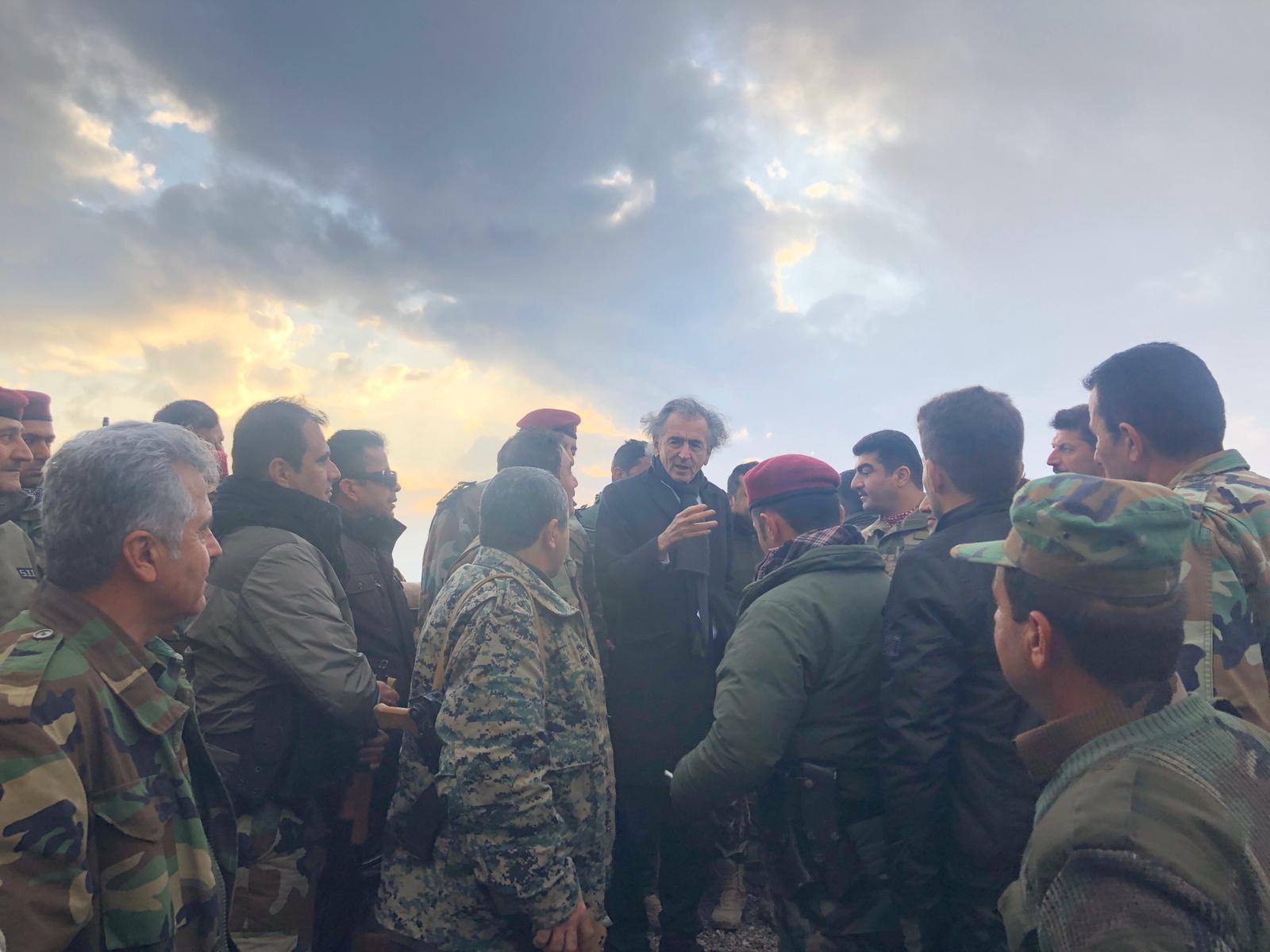In the fall of 1991, Bernard-Henri Lévy visited the Kurdistan region of Iraq for the first time. He traveled to Zakho, where he bore witness to a ghost-like city, trembling under the cloud of death. He traveled the route towards Mosul, meeting Peshmerga and intensifying his conviction that the war against Saddam Hussein, the first one, was essential as this dictator had brought war upon his own country. Lévy traveled to the camp of Cukurca, via the famous Kurdish mountains, coming to his destination as the sun rose and lights glimmered. He saw the misery and met with the refugees, many of whom were of the intelligentsia, businessmen, political figures and the upper echelons of society. The number of radios and books among these refugees and their dignity and pride was heartbreaking. And finally, Lévy’s trip reinforced his belief that the humanitarian intervention of “Operation Provide Comfort” needed to be accompanied with an intervention of “Provide Democracy” with laws and liberty for this noble people.
Thirty years later, the Kurds are, alas, still striving towards their dream of statehood and Lévy’s advocacy for the Kurdish people has not once wavered. On the contrary, he has stood shoulder to shoulder with the Kurds in some of their darkest moments: in the war against ISIS when he embedded himself with General Sirwan Barzani and the Peshmerga Sector 6 traveling the frontline against the terrorists, making his films Peshmerga and The Battle of Mosul, as the world abandoned the Kurds following their referendum in September 2017, as nations stood by as Kirkuk was pillaged and bulldozed with US Abrams tanks given to the Iraqi military and as Erdogan invaded Afrin and still has not ceased to ethnically cleanse the Kurds from Rojava.
Lévy’s commitment to the Kurds is steadfast, as is his resolute activism with respect to so many other forgotten people. Now readers have the opportunity to learn precisely where Lévy’s drive and compassion stems from. Lévy’s latest book, Sur la route des hommes sans nom, published on May 5, 2021, by Editions Grasset, details the origins of his convictions as a committed intellectual in constant action on the ground. He details his deep urge to seek out people facing injustice and shares why he has been compelled, for nearly 50 years, to make their plight known to the world. Lévy explains so poignantly how an inner rhythm, voice and reflex pushes him to speak out and act in the face of humanitarian disasters.
The new work also chronicles Lévy’s reporting trips in 2020, published over the course of the last year in Paris Match, The Wall Street Journal, La Repubblica, Der Stern and a multitude of European papers. During this strange year where the world looked inward and closed its eyes to suffering unrelated to the pandemic, Lévy’s eyes stayed wide open. He traveled to Nigeria, Afghanistan, Libya, Ukraine, Somalia, Lesbos, Bangladesh and Kurdistan, confronting misery, terrorism, massacres, mass graves, battlegrounds, refugee camps and met with those in the darkest corners of the earth.
Allow me to come back to the Kurds. Indeed, thirty years has past since Operation Provide Comfort and Lévy’s first visit to Kurdistan. In this time, the Kurdistan Regional Government has developed institutions and infrastructure that have allowed it to thrive politically and economically, promote gender equality and religious freedom and welcome in thousands of refugees fleeing persecution and war – in other words, it is a safe haven in an area of instability and insecurity. These achievements have not been easily won and despite often being left to go it themselves, the Kurds have, time and again, overcome struggles to lay building blocks for their nation. One thing is sure. In addition to their cherished mountains, the Kurds have a loyal friend and advocate: Bernard-Henri Lévy. His latest book affirms his bond with the Kurds, as well as with afflicted people around the globe.

